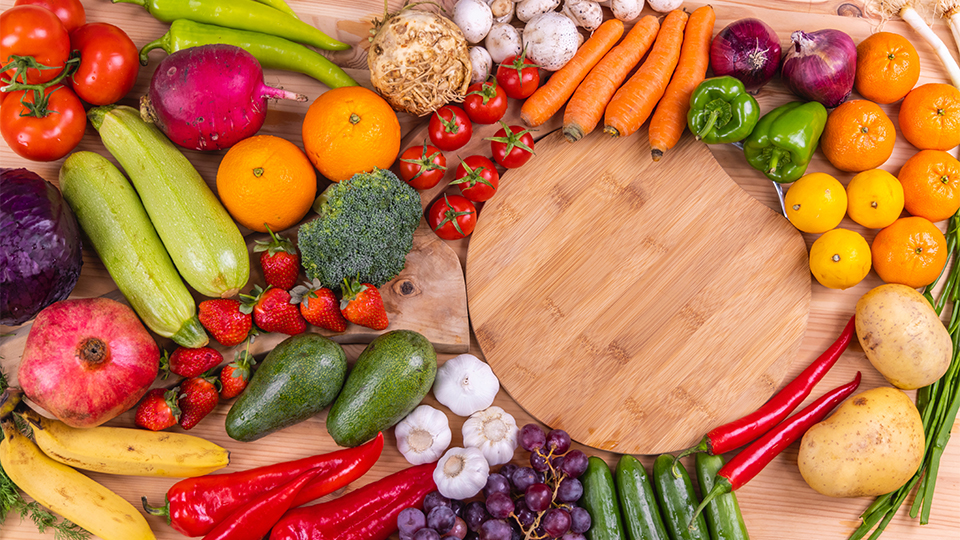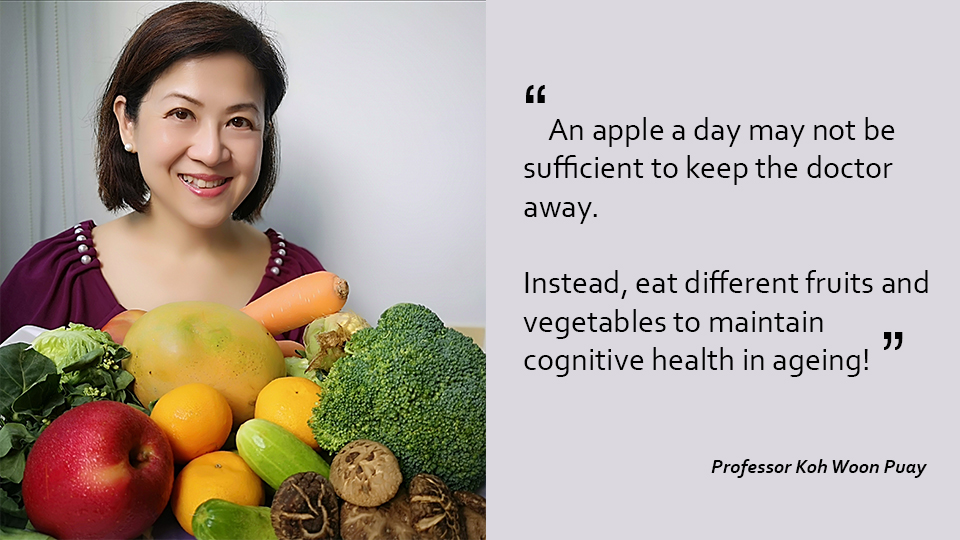Eating more fruits and vegetables, in quantity and variety, improves cognitive function when ageing
Published: 06 May 2022

In a Singapore study, published in the recent edition of the British Journal of Nutrition in March 2022, a team led by Professor Koh Woon Puay from the Healthy Longevity Translational Research Programme at the NUS Yong Loo Lin School of Medicine, studied the data on consumption of fruits and vegetables among middle-aged Singaporean Chinese. It was found that those who ate a high intake of fruits and vegetables, in terms of quantity as well as in variety, had significantly reduced risk of cognitive impairment.
The team evaluated data from 16,737 participants of the Singapore Chinese Health Study, a population-based cohort study established between 1993 and 1998 by a recruitment of 63,257 Chinese participants aged 45 to 74 years in Singapore.
As a result of global population ageing, the number of people living with dementia will almost double every 20 years, and is estimated to reach 131.5 million in 2050 worldwide. A healthy diet is among the first steps to preserve cognitive function in ageing.
Prof Koh says, “Dietary guidelines from the World Health Organization (WHO) and many countries have recently emphasized that, on top of eating enough, increasing the variety in the consumption of fruits and vegetables is also important in improving health.”
However, there is less evidence on fruit and vegetable intake in relation to cognitive function in ageing. Although previous studies have revealed that a higher consumption of fruits and vegetables is likely to reduce the incidence of dementia, the independent effect of these two food groups on cognitive function has yet to be established. It is unclear whether increasing the variety in fruits and vegetables, independent of the quantity of intake, could further prevent cognitive impairment.
The types of fruits and vegetables consumed commonly in different populations may vary due to socio-cultural factors such as religion, traditional beliefs and food preferences, as well as socio-economic factors such as cost, availability and ease of accessibility, which are all factors that can influence the diversity in fruits and vegetables between Asian and Western populations. Given that most of previous studies were done in Western countries, studies among understudied Asian populations are necessary,” said Prof Koh.
This research finding is consistent with other studies in Western populations in showing that higher quantity of total fruit and vegetable intake was associated with lower odds of cognitive impairment at late life.

Photo Credits: Professor Koh Woon Puay
There is evidence from previous studies that some specific subtypes of fruits and vegetables, such as green leafy vegetables and berries, could be associated with cognitive function or risk of dementia. However, very few studies have reported a comprehensive examination of subtypes of fruits and vegetables,” she added. This study showed that the benefit of fruits and vegetables were not limited to a specific type or a few specific items. Instead, higher intake at midlife of a variety of fruits with low or moderate glycaemic-index, as well as a variety of light green vegetables and gourds, yellow-orange vegetables like corn and carrot and a variety of mushrooms, were all associated with lower risk of cognitive impairment at late life.
The study was published in a recent edition of the British Journal of Nutrition in March 2022, and can be found here.
Read more in the press release here.
News Coverage


